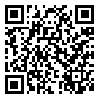1. International Telecommunication :union:. ICT Facts and Figures 2017 [Internet]. 2017. [
Article]
2. Shek DTL, Zhu X, Ma CMS. The influence of parental control and parent–child relational qualities on adolescent internet addiction: a 3–year longitudinal study in Hong Kong. Front Psychol. 2018;9:642. [
DOI]
3. Cheng C, Li AY lam. Internet addiction prevalence and quality of (real) life: a meta-analysis of 31 nations across seven world regions. Cyberpsychol Behav Soc Netw. 2014;17(12):755–60. [
DOI]
4. Fredricks JA, Blumenfeld PC, Paris AH. School engagement: potential of the concept, state of the evidence. Rev Educ Res. 2004;74(1):59–109. [
DOI]
5. Motti–Stefanidi F, Masten AS. School success and school engagement of immigrant children and adolescents: a risk and resilience developmental perspective. Eur Psychol. 2013;18:126–35. [
DOI]
6. Weinstein A, Lejoyeux M. Internet addiction or excessive internet use. Am J Drug Alcohol Abuse. 2010;36(5):277–83. [
DOI]
7. Rohani F, Tari S. A study of the relationship between the rate of addiction to internet with academic motivation and social development among high school students in Mazandaran province. Information and Communication Technology in Educational Sciences. 2012;2(2):19–34. [Persian] [
Article]
8. Kandemir M. Predictors of academic procrastination: coping with stress, internet addiction and academic motivation. World Appl Sci J. 2014;32(5):930–8.
9. Duncan LG, Coatsworth JD, Greenberg MT. A model of mindful parenting: implications for parent-child relationships and prevention research. Clin Child Fam Psychol Rev. 2009;12(3):255–70. [
DOI]
10. Ha JH, Kim SY, Bae SC, Bae S, Kim H, Sim M, et al. Depression and internet addiction in adolescents. Psychopathology. 2007;40(6):424–30. [
DOI]
11. Gámez–Guadix M, Calvete E. Assessing the relationship between mindful awareness and problematic internet use among adolescents. Mindfulness. 2016;7(6):1281–8. [
DOI]
12. Kim HK, Davis KE. Toward a comprehensive theory of problematic internet use: evaluating the role of self-esteem, anxiety, flow, and the self-rated importance of internet activities. Computers in Human Behavior. 2009;25(2):490–500. [
DOI]
13. Keng SL, Smoski MJ, Robins CJ. Effects of mindfulness on psychological health: a review of empirical studies. Clin Psychol Rev. 2011;31(6):1041–56. [
DOI]
14. Shameli M, Moatamedi A, Borjali A. The effectiveness of cognitive therapy based on mindfulness of internet game addiction intermediary variables with self-control and sensation seeking, in boy adolescents in the city of Tehran. Counseling Culture and psychotherapy. 2018;9(33):137-61. [Persian] [
DOI]
15. Mordi E. The effectiveness of cognitive-based mindfulness therapy on social anxiety in mothers with mentally educational knowledge. Rooyesh 2019;8(6):1-8. [Persian] [
Article]
16. Mobaraki R, Ezatpour EE, Ahmadian H. The effectiveness of mindfulness-based cognitive therapy on emotional adjustment of opiate-consumers. Shenakht Journal of Psychology and Psychiatry. 2018;5(5):92-103. [Persian] [
DOI]
17. Delavar A. Educational and psychological research. Tehran: Virayesh Pub; 2018. [Persian]
18. Asher SR, Hymel S, Renshaw PD. Loneliness in children. Child Development. 1984;55(4):1456–64. [
DOI]
19. Kabat-Zinn J. Participatory medicine. J Eur Acad Dermatol Venereol. 2000;14(4):239–40. [
DOI]
20. Talebi S, Zare H, Rastegar A, Hosseinpour A. Sakhtar ameli meghyas dargiri tahsili Fredricks (shenakhti, raftari va angizeshi) [Factor structure of the Fredricks Academic Involvement Scale (cognitive, behavioral, and motivational)]. Journal of Research in Educational Systems. 2014;8(24):1–16. [Persian] [
Article]
21. Rezaei AM, Safaei M, Hashemi FS. Psychometric properties of the Student Loneliness Feeling Scale (SLFS). Journal of Clinical Psychology. 2013;5(3):81–90. [Persian] [
DOI]
22. Young KS. Internet addiction: the emergence of a new clinical disorder. Cyberpsychol Behav Soc Netw. 1998;1(3):237–44. [
DOI]
23. Ghasemzadeh L, Shahraray M, Moradi AR. The study of degree of prevalence to internet addiction and its relation with loneliness and self-esteem in high schools’ students of Tehran. Journal of Education. 2007;23(1):41-68. [Persian]
24. Taherpour MA, Rostami R. A review of studies on mindfulness-based interventions in Iran. Rooyesh–e–Ravanshenasi Journal (RRJ). 2019;8(3):123–32. [
Article]
25. Lin JW, Mai LJ. Impact of mindfulness meditation intervention on academic performance. Innovations in Education and Teaching International. 2018;55(3):366–75. [
DOI]
26. McCloskey LE. Mindfulness as an intervention for improving academic success among students with executive functioning disorders. Procedia Soc Behav Sci. 2015;174:221–6. [
DOI]
27. Lindsay EK, Young S, Smyth JM, Brown KW, Creswell JD. Acceptance lowers stress reactivity: dismantling mindfulness training in a randomized controlled trial. Psychoneuroendocrinology. 2018;87:63–73. [
DOI]
28. Zhang N, Fan FM, Huang SY, Rodriguez MA. Mindfulness training for loneliness among Chinese college students: a pilot randomized controlled trial. Int J Psychol. 2018;53(5):373–8. [
DOI]

 ، زهرا نیک منش*2
، زهرا نیک منش*2 
 ، علی فرنام2
، علی فرنام2 




